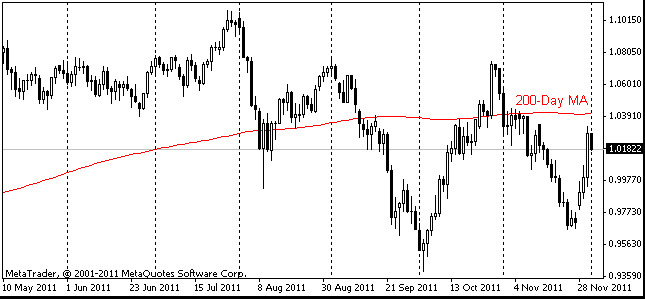EUR/usd
S&P has downgraded Greece's credit rating to selective default (SD). This decision hasn't come as a surprise, as the agency already promised to do it a couple of months ago. For this reason, there haven't been any sharp euro sales. The agency has also pointed out that if there aren't enough private investors engaged in debt swap, the country will inevitably face outright default. However, as the technical analysis shows, the euro sales were just held during the day yesterday, not longer. EUR/USD fell to 1.3366 during Monday's session, but already now trading is again conducted around 1.3440. Demand in stock and commodity markets remains strong. And current traders' talks more and more resemble those of early 2008. Traders underestimate the consequences of the European issues now just like they underestimated the graveness of the situation in the US and the UK banking sector then. Investors turn their eyes to the developed countries, performing rather well at the moment, as if the poor state of affairs in Europe wasn't likely to impact developing China and Russia. Of course, there has been a certain shift in the economic models of China over this time, but the fact still is that all the developing BRIC countries heavily depend on demand in foreign markets. Moreover, most of their capitals come from the U.S., Europe and Japan, which is a result of the soft monetary policy in these countries.

GBP/USD
Following the market recovery, the British pound also tries to demonstrate some growth. However, its dynamics leave much to be desired, which is especially noticeable in the pair with the euro. Over the last week EUR/GBP rose from 0.83 to 0.85. On Friday and Monday the pair was about to set for correction, but today it looks poised to storm new highs. It is not surprising though, taking into account the forecasted and managed course of events in the euro zone on the one hand, and the BOE's mood to ease the policy on the other hand.

USD/JPY
The Japanese yen has experienced quite a significant correction on Monday and earlier today, having returned to 80.0 for some time. However, after a brief break USD/JPY again looks ready to continue its upward movement. The BoJ's soft policy brings its best fruit at the time when traders and investors have the courage to invest in risky assets and do not keep their money under the pillow in cash or deposits.

AUD/USD
Already yesterday the Australian dollar managed to go positive. As has been mentioned, this became possible mainly because the country got rid of the political uncertainty. In addition, Gillard, who has retained the power, has a less tough stance towards the taxation of mining companies, which gives hope for a more substantial financing of the industry. As a result, the Australian dollar rose to 1.0780, and now is about to storm the important 1.08 level. Taking of this level will mark the end of correction after the previous rally.
